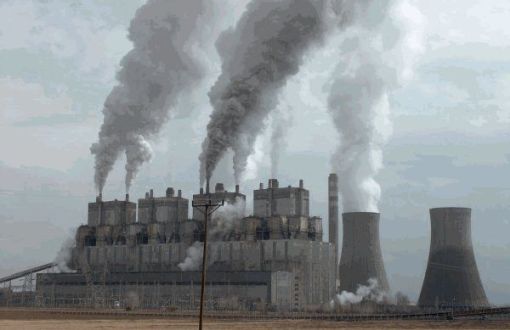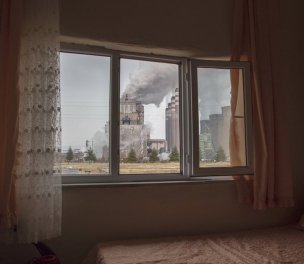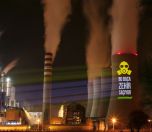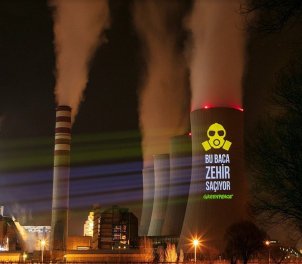Afşin-Elbistan A Thermal Plant (Photo: Wikimedia Commons)
Click to read the article in Turkish
Reopening of some coal-fired plants after being shut down in January because of failing to comply with environmental rules "needs an explanation" as to how they were able to fulfill the requirements in such a short time, a chamber of chemical engineers has stated.
Minister of Environment and Urbanism Murat Kurum announced on June 8 that 14 units in six plants were granted a one-year temporary operating license after they were "harmonized with the legislation."
The ministry should share with the public the progress and completion status of the investments by the plant operators in order to fulfill their environmental obligations, the Union of Chambers of Turkish Engineers and Architects Chamber of Chemical Engineers (TMMOB KMO) said in a written statement.
It needs an explanation that how the chimney gas treatment facility of the Afşin-Elbistan A Plant was completed and its dust collector system was rehabilitated within such a short period of time, considering the high capacity of the plant, the KMO noted.
The plant located in the southeastern Maraş province has contributed to thousands of early deaths in the 34 years it has been operational, according to a 2019 report by Greenpeace Mediterranean.
"Data should be shared with the public"
"As is known, gaseous pollutants originating from coal plants are not limited to sulfur dioxide, and nitrogen oxides should also be taken into consideration. Does the Ministry of Environment and Urbanization work on particles smaller than 2.5 microns that the World Health Organization considers more harmful to public health?" the KMO said.
"In order to measure air quality within the impact area of all coal-fired power plants, air quality measurement stations should be set up to represent the pollution exposed by considering factors such as prevailing wind direction, required distances and surrounding settlements, and the continuously measured pollutant values should be shared with the public.
"It is necessary to check that the liquid wastes originating from power plants are disposed of in accordance with the relevant regulations and the data regarding this issue should be shared with the public. The rational use of water resources is another important aspect of the issue."
What happened?Minister Kurum on January 1 announced that the thermal power plants of Maraş Afşin A, Kütahya Seyitömer, Kütahya Tunçbilek, Sivas Kangal and Zonguldak Çatalağzı were completely closed and Manisa Soma Thermal Plant was partially closed. Despite having no filters, 9 coal-fired power plants were granted "temporary operating certificates" that are valid until January 2021: Çanakkale / ÇAN 18 Mart Thermal Power Plant What does a filter do?According to the data shared by the Turkish Medical Association (TTB), if no filters are used, a 100-Megawatt thermal power plant burning coal leaves the following contaminating impacts on nature: Sulphur Oxides (SO2) - 45,000 ton/year Nitric Oxides (NOx) - 26,000 ton/year Carbon Monoxide (CO) - 750 ton/year Solid Particles (PM) - 32,500 ton/year Hydrocarbons - 250 ton/year Ash - 5,660 ton/year |
(TP/VK)









